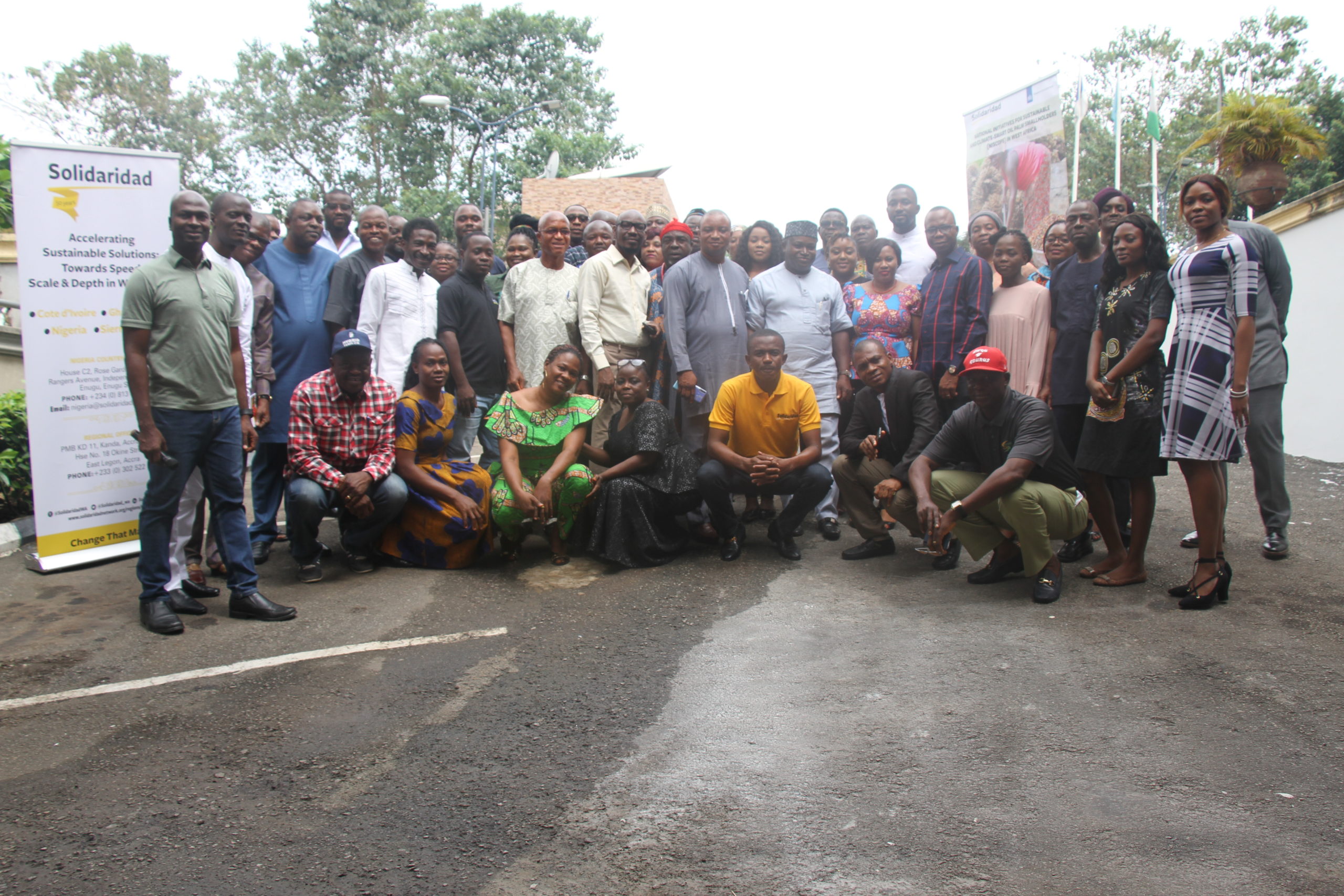Solidaridad is set to commence full implementation of The Government of Netherlands-funded agriculture development programme in Nigeria. This comes after a successful inception stage of its oil palm intervention programme known as National Initiatives for Sustainable and Climate Smart Oil Palm Smallholders (NISCOPS) in West Africa. To achieve this, the INGO recently concluded a 2-day national stakeholders’ forum for NISCOPS in Abuja, where participants developed indicators for the work plan that will guide the implementation stage of programme between 2020 and 2023.

The forum attracted stakeholders from Ministries of Agriculture, Environment, Commerce and Industry, and MDAs from the four states of Akwa Ibom, Cross River, Enugu, and Akwa-Ibom, where NISCOPS is being implemented. Civil Society Organisations (CSOs), research brain-stormed to develop the work plan indicators for implementation of NISCOPS.
In its implementation stage, NISCOPS will build capacity of farmers to implement best management practices, intensify and rehabilitate efforts and ensure sustainable climate-smart practices for increased productivity of palm oil. The programme will also introduce innovation for improved downstream processing to increase palm oil extraction rate and quality, create competitive oil palm sector through policy and institutional dialogue and influencing, improve access to finance, inputs and market for oil palm smallholder farmers and SMEs.
Dr. Samson Samuel Ogallah, Solidaridad’s Senior Climate Specialist for Africa, said that NISCOPS will enable government to support and work with farmers towards a more sustainable, climate-smart oil palm production, build capacity of smallholders, organisations and local institutions to improve performance, support the development of mechanisms to operate in landscapes prone to deforestation and peat degradation, and contribute to the objectives of national determined contributions (NDC) under the Paris Agreement and the Sustainable Development Goals (SDGs). In his view climate-smart agriculture that will improve yield and income of smallholder farmers with less harm to the environment.
According to Kenechukwu Onukwube, Programme Manager, Oil Palm, Solidaridad in Nigeria, the global oil palm market which is currently worth over $62 billion annually underscores the commodity’s economic significance and multiple utility. He believes the multiple utility and economic significance of palm oil both in the home and industries explains this growth in its global market size. He noted that palm oil production has the capacity to lift millions of rural poor out of poverty and contribute to attainment of the Sustainable Development Goals (SDGs).
Nigeria is currently the biggest loser in palm oil business. “The country is unable to provide adequate quantity required domestically, it loses foreign exchange as a result of importation of oil and loses potential revenue that would have been earned if vast area of land was to be utilised in sustainable ways,’’ he said.
He emphasised the need to empower smallholder farmers, saying that they remain players in the oil palm sector. “Empowering smallholder farmers would translate to pro-poor strategy that would lift millions of Nigerians out of poverty in line with Federal Government’s plan to lift 100 million Nigerians out of poverty”.
By Osaze Omoragbon


